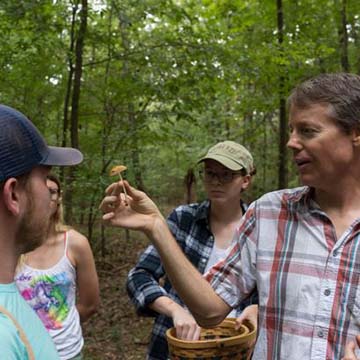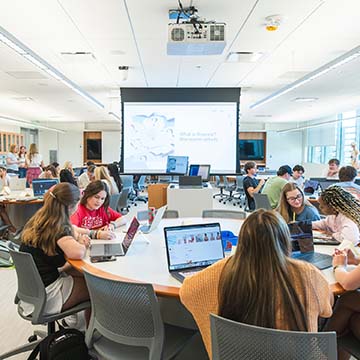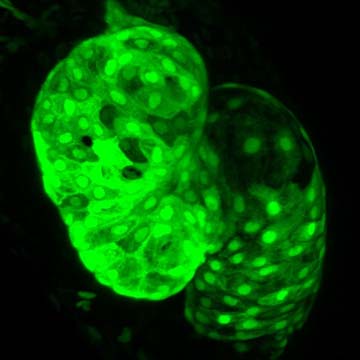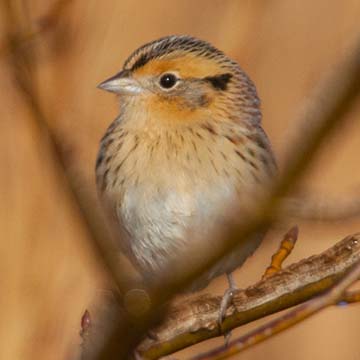Undergraduate Programs in Biology
Begin your study of life sciences right here and get prepared for a broad range of academic and professional opportunities in a rapidly advancing field.

Earn an Undergraduate Degree in Biology
The Department of Biology at the University of Mississippi is a comprehensive life science department with faculty working in many areas of biology. We are a collaborative department that trains students to think broadly, to use interdisciplinary approaches, and to develop innovative insights into fundamental biological processes.
Biology is the scientific study of living systems and all their complexities, and there has probably never been a more exciting time to be a biologist. There are dramatic advances in technology and we are gaining deeper understanding of of living organisms, their populations, how they are evolving, and how they are responding to environmental change.
Our required biology and chemistry courses integrate your knowledge across levels of biological organization. This preparation provides the foundation for a wide variety of professional school programs and career options.
Associate Chair for Undergraduate Studies
"Whether you're considering a biology major or already are one, I'm here to help with any questions!"
Carol Britson
Instructional Professor of Biology, Associate Chair for Undergraduate Studies
Optional Emphasis Areas
Meet Our Featured Ambassadors
-

Academic Advising
Freshmen biology majors, like most freshmen on campus, are advised through the Center for Student Success and First Year Experience (CSSFYE). The Center for Student Success and First Year Experience is an excellent resource for all first-year students as their commitment is to helping students successfully transition to college. Sophomores through seniors are advised in the Department of Biology.
Visit the CLA Academic Advising Page -
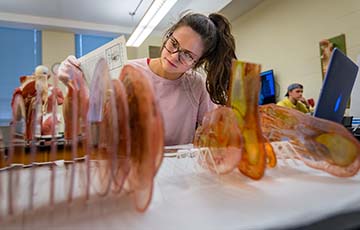
Featured Courses
See a few examples of courses across the subfields of Biology.
View Our Biology Featured Courses -
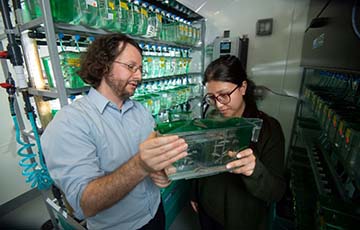
Accelerated Master’s
The Department of Biology offers students with excellent academic records the opportunity to apply for admission to an accelerated five-year B.A./M.A. or B.S./M.S. degree program combinations (4+1). Admitted students complete graduate-level BISC courses in their senior year, which count towards both undergraduate and graduate degrees in an accelerated master's program.
Visit the Accelerated Master's Program -

Biology Mentor Program
The Biology Mentor Program offers a biology community among undergraduate students. The mentor program helps students feel welcomed into their biology classes and keeps them on track for introductory biology courses and beyond. Mentors offer support and tutoring to undergraduates enrolled in Biology courses, and both mentor and mentee positions are open to all majors.
Join the Mentor Program -

Student Success Resources and Scholarships
Biology alumni and friends have given funding to support scholarships dedicated to students in the Department of Biology. Visit our website to see these and other scholarship opportunities, including those to support internships and travel courses.
View Biology Resources and Scholarships -

Health Professions Advising Office
As the only full-service office of its kind in the state of Mississippi, HPAO's mission is to counsel all UM health professions students on available opportunities for a health care career, and advise students toward a competitive application.
View HPAO -

Careers and Alumni
See the top biology sectors for the employers of our biology undergraduate alumni. Meet a few alumni and how they view the value of their major in today's world.
Learn About Our Biology Careers and Alumni
Beyond the Classroom
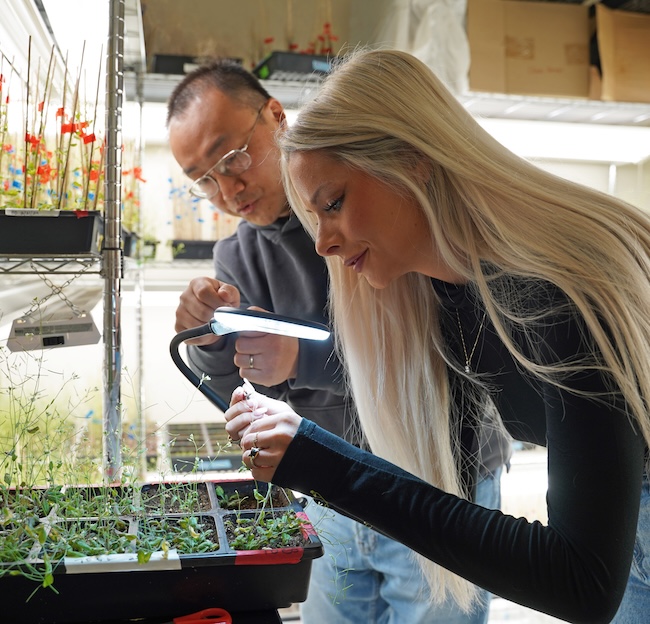
Research Opportunities
If you are enrolled in a biology course, visit the office hours or communicate with the biology faculty member(s) teaching your course(s) to discuss your interests in biology and who you might approach to explore those interests further through research. Discuss your research interests with your academic advisor and learn about which faculty best fit your interests. Learn more about the faculty specializations within the various research areas.
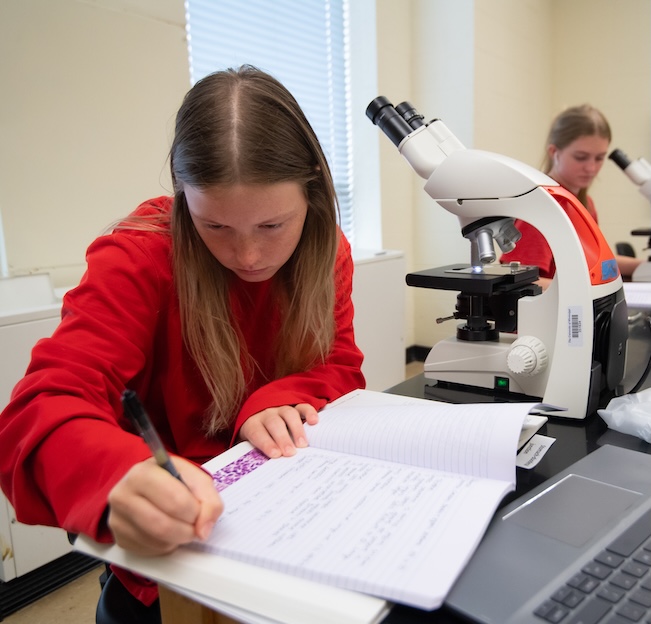
CURE Courses
Students can gain valuable research experience by enrolling in one of our CURE (Course-based Undergraduate Research Experience) courses. Students will develop and complete an original research project within a semester-long course under the guidance of one of our faculty. At the end of the CURE course, students will present their findings in our undergraduate research symposium. Recent CURE courses have focused on Conservation Physiology, Ecological Genetics, Spatial Ecology, and Plant Genomics and Biotechnology.

Travel Courses
Our department offers many opportunities for students interested in broadening their horizons via travel and study both inside and outside the United States. The locations and courses chosen for these excursions grant our students a more holistic view of the field of biology beyond our classrooms on campus.
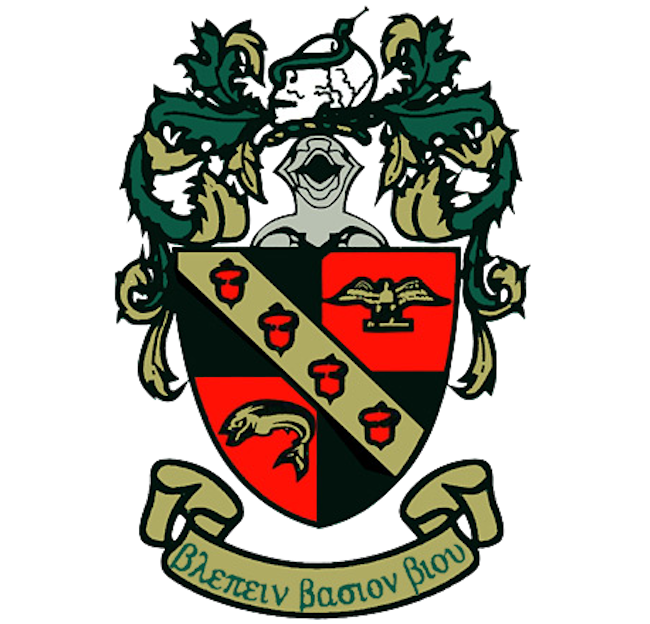
TriBeta (Beta Beta Beta)
TriBeta is the National Biological Honor Society. This society is particularly for undergrad students and is dedicated to improving the understanding and appreciation of biological study and extending boundaries of human knowledge through scientific research.
Awards and Achievements
Lindsay Ashton – Fall 2023 – Mentor: Dr. Yongjian Qiu
Audrey Koltz – Spring 2024 – Mentor: Dr. Michel Ohmer
Cadan Noonan – Spring 2024 – Mentor: Dr. Ryan Garrick
Anna Nowell – Spring 2024 – Mentor: Dr. Peter Zee
Aubrey Bethay
Christopher Buss
Abby Carroll
Allison Dupree
Sreya Maddali
Victoria Mungan
John Suares
Walker Watters
Daniel Zuckerman
Carley Craig received 1st place in the Neuroscience Division at the Mississippi Academy of Science
Simran Patel received recognition of the top 10% of undergraduate abstracts at Mississippi Academy of Science selected by MS INBRE.

